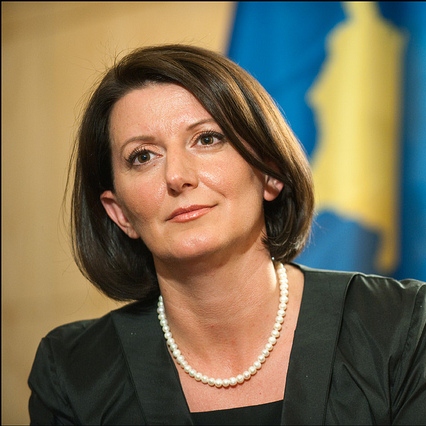
Source: Flickr
What could Hong Kong, Liberia, and Kosovo teach us? Perhaps, rather unexpectedly, about successful ways of dealing with public corruption. Corruption is effectively a hidden tax on living and doing business in many emerging democracies and, as a result, is one of the most serious obstacles to deepening democracy and economic development. It is particularly dangerous when corruption turns into a culturally accepted practice. In the Deepening Democracy report, Kofi Annan points out that corruption contributes to “rotting the entire political system slowly from within.”
Countries may face specific problems, but they can also learn from each other’s solutions. Dealing with corruption requires effective institutions and, most importantly, credible leaders. While widespread corruption is generally a problem developing countries face, the approaches that these countries take to combat corruption could also be helpful to Western democracies both for problems they face at home and in their attempts to assist developing nations.
Hong Kong is considered to have built one of the most successful institutions to combat public corruption. A USAID anti-corruption publication considers Hong Kong’s Independent Commission Against Corruption an iconic and historical example, “perhaps the most successful example of an anti-corruption agency,” as it has proven capable of launching large-sale investigations and solving high-profile cases of corruption. The key to its success was that, rather than restricting its activities to law enforcement, Hong Kong’s ICAC also worked on changing public attitudes that consider personal loyalties more important than formal rules and public duties.
Building institutions that fight corruption is crucial, but not enough. Combating public corruption requires political will, shared responsibility, and hard work among the democratically elected and political party leaders, political opposition, civil society, and citizens. In short, anti-corruption initiatives are more likely to succeed if they bring more stakeholders on board.
Here are two examples of political leaders that took the lead in fighting corruption within parts of the world previously infamous for graft. Ellen Johnson Sirleaf, President of Liberia and the first female head of state in Africa, and Atifete Jahjaga, President of Kosovo and the first female head of state in the Balkans. Both of them have shown incredible leadership in historically volatile regions of the world where men have traditionally dominated the political sphere.
Known as Liberia’s Iron Lady, President Sirleaf built her credibility over years. She contributed to rebuilding Liberia’s economy long before she came into the Office and won the Nobel Peace Prize in 2011 for her contribution to both the peace process and women’s rights movements within Liberia. President Sirleaf’s commitment to tackling corruption even extended to suspending her own son, along with 46 other senior government officials, for failing to disclose his assets to Liberia’s anti-corruption officials. Call it political manoeuvring, we cannot deny that her act—especially considering her campaign promise “to bring motherly sensitivity and emotion to the presidency”—appears to be an incredibly effective way to demonstrate to the citizens and hard working businesspeople of Liberia that she and her government are taking the fight against corruption seriously.
President Jahjaga, by contrast, was not a known figure prior to her appointment. Before being nominated as a consensual presidential candidate between the government and the opposition, she served as deputy director of the national police—a position that involves hard work but little publicity. As a result, the general public had no expectations regarding her performance. But one expectation that people generally (should) have from any senior public official is the ability to demonstrate that he or she is genuinely willing and able to tackle the issues that the majority consider to be most important. And in Kosovo, it was corruption that was perceived as the root of all evils.
After a couple of months as President, her first-ever speech in the parliament demonstrated that she both recognized this problem and planned on tackling it head on. With a confident voice, she announced the establishment of a presidential anti-corruption council. The council would coordinate the work and activities of the main stakeholders fighting corruption.
The sceptics are likely to believe such initiatives will be failures from their inception: according to their narrative, stakeholders meet, deliver their speeches, and do nothing. Or, even worse, such institutions would be accused of legitimating corrupt officials by entrusting them with the very corruption initiatives designed to investigate them. State practice suggests, however, that combating corruption requires setting up an effective information exchange mechanism between law enforcement agencies and other involved actors.
For President Jahjaga, establishing a results-driven Council was only the beginning. She clearly recognizes that corruption is also an international problem and its eradication necessitates common solutions. In organizing an international women’s summit in Kosovo, which dealt closely with the issue of public corruption, Kosovo was turned from a centre of corruption to an international centre for finding solutions against corruption. Kosovo’s continuing demonstrations of commitment to the eradication of corruption should strengthen the trust of citizens and investors. It should also show to sceptics that a genuinely committed leader can make a difference to a country’s graft culture and that they deserve international support in doing so.
Gent Salihu is an MPP candidate at the Blavatnik School of Government at the University of Oxford.
This post is part of our Deepening Democracy series, responding to a September 2012 report by the Global Commission on Elections, Democracy and Security, on improving the integrity of elections. The series is being curated by the Blavatnik School of Government and hosted on Politics in Spires. It features contributions from students on the Master of Public Policy course at the Blavatnik School, as well as guest posts from Oxford and Cambridge scholars in politics and international relations.





1 Comment